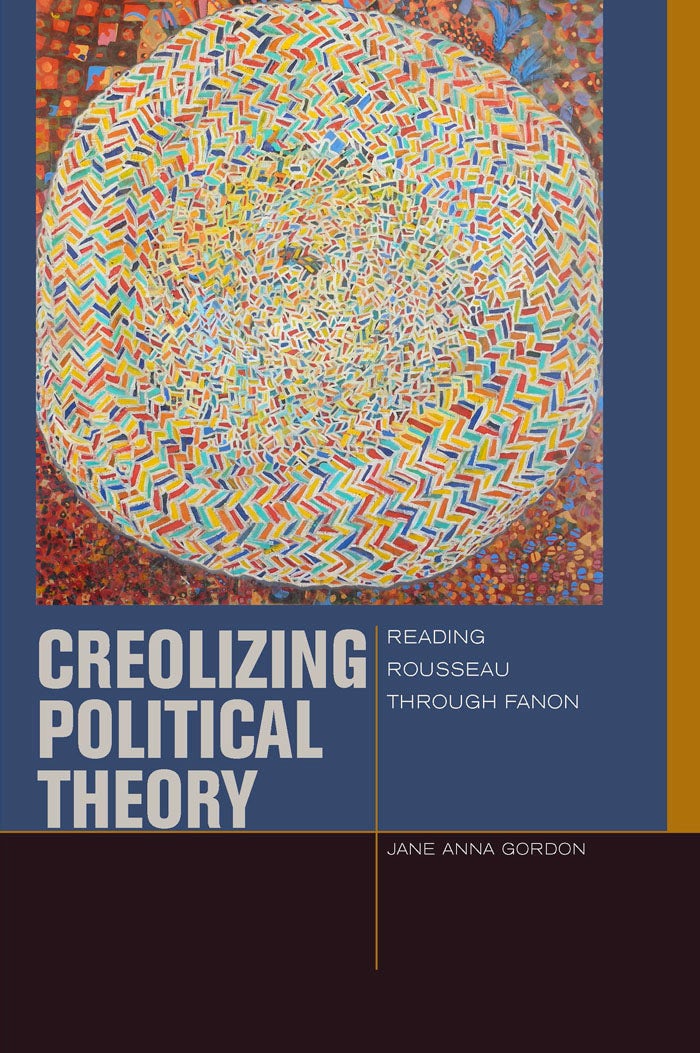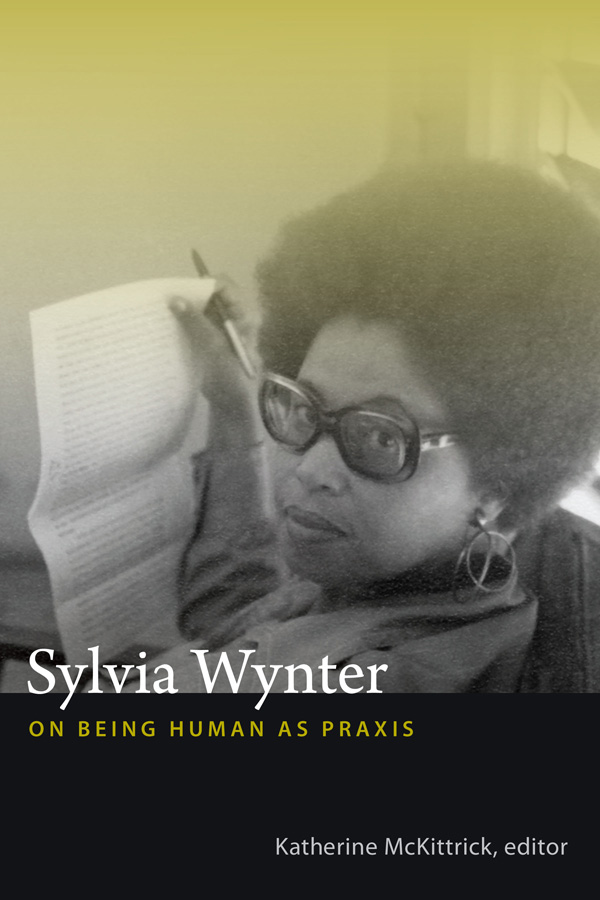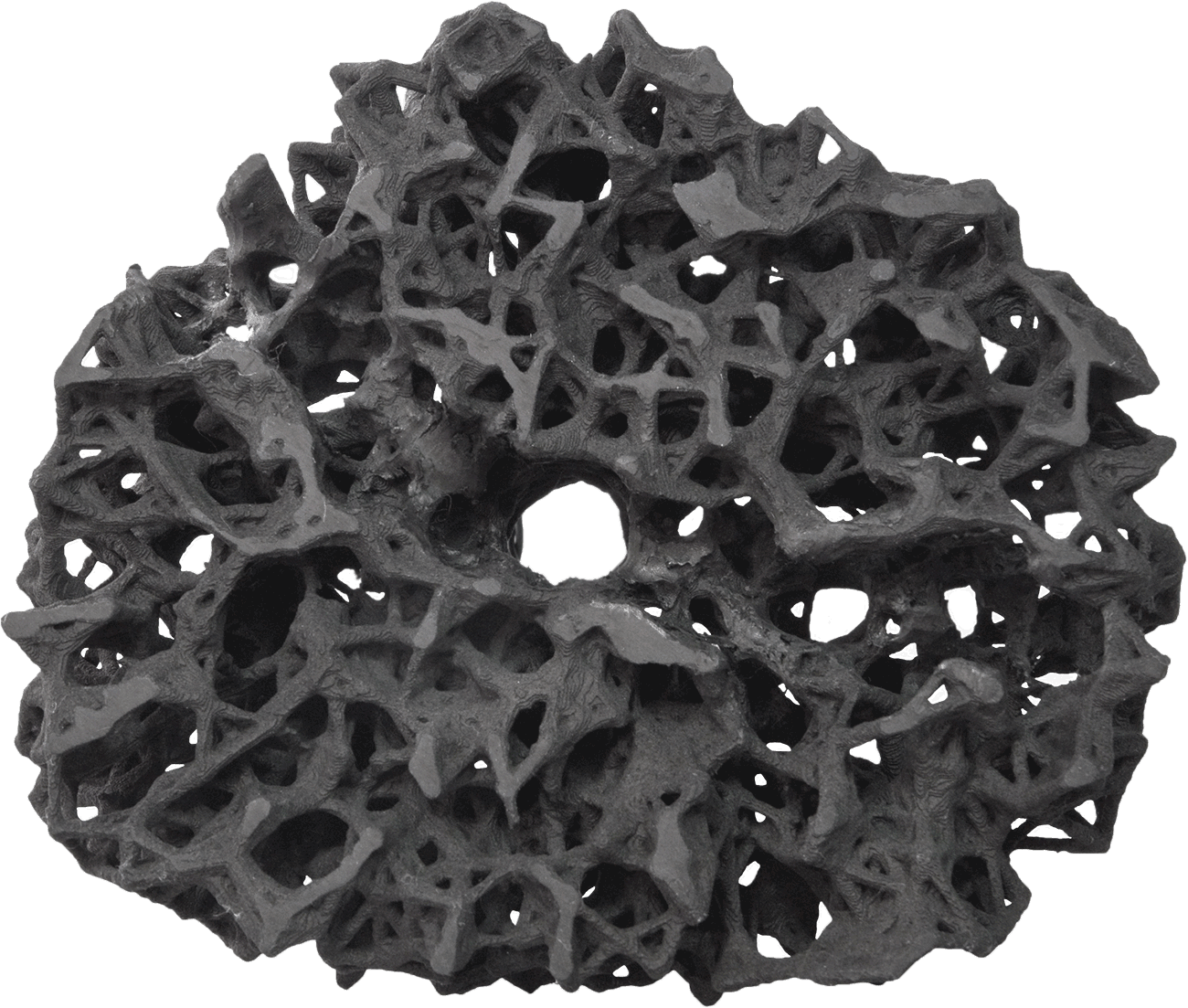Jane Anna Gordon: Creolizing Political Theory: Reading Rousseau through Fanon (2014)
Filed under book | Tags: · black people, colonialism, creolization, decolonization, freedom, governance, law, modernity, political theory, politics, power, race, theory

“Might creolization offer political theory an approach that would better reflect the heterogeneity of political life? After all, it describes mixtures that were not supposed to have emerged in the plantation societies of the Caribbean but did so through their capacity to exemplify living culture, thought, and political practice. Similar processes continue today, when people who once were strangers find themselves unequal co-occupants of new political locations they both seek to call “home.”
Unlike multiculturalism, in which different cultures are thought to co-exist relatively separately, creolization describes how people reinterpret themselves through interaction with one another. While indebted to comparative political theory, Gordon offers a critique of comparison by demonstrating the generative capacity of creolizing methodologies. She does so by bringing together the eighteenth-century revolutionary Swiss thinker Jean-Jacques Rousseau and the twentieth-century Martinican-born Algerian liberationist Frantz Fanon. While both provocatively challenged whether we can study the world in ways that do not duplicate the prejudices that sustain its inequalities, Fanon, she argues, outlined a vision of how to bring into being the democratically legitimate alternatives that Rousseau mainly imagined.”
Publisher Fordham University Press, New York, 2014
Just Ideas series
ISBN 9780823254811, 082325481X
xv+294 pages
Reviews: Anne Norton, Sharon Stanley, Fred Lee, Thomas Meagher (with author’s response, Contemporary Political Theory, 2018).
See also: Forum on Creolizing Theory (ed. Lewis R. Gordon, Journal of French and Francophone Philosophy, 2017), The Creolization of Education, Pedagogy, and Political Theory (ed. Lewis R. Gordon, Review of Education, Pedagogy, and Cultural Studies, 2018).
Sylvia Wynter: On Being Human as Praxis (2015)
Filed under book | Tags: · black people, blackness, body, colonialism, consciousness, creolization, human, human ecology, indigenous peoples, knowledge, land, migration, modernity, philosophy, race, racism, representation, slavery, territory, theory, violence

“The Jamaican writer and cultural theorist Sylvia Wynter is best known for her diverse writings that pull together insights from theories in history, literature, science, and black studies, to explore race, the legacy of colonialism, and representations of humanness. Sylvia Wynter: On Being Human as Praxis is a critical genealogy of Wynter’s work, highlighting her insights on how race, location, and time together inform what it means to be human. The contributors explore Wynter’s stunning reconceptualization of the human in relation to concepts of blackness, modernity, urban space, the Caribbean, science studies, migratory politics, and the interconnectedness of creative and theoretical resistances. The collection includes an extensive conversation between Sylvia Wynter and Katherine McKittrick that delineates Wynter’s engagement with writers such as Frantz Fanon, W. E. B. DuBois, and Aimé Césaire, among others; the interview also reveals the ever-extending range and power of Wynter’s intellectual project, and elucidates her attempts to rehistoricize humanness as praxis.”
Essays by Katherine McKittrick, Denise Ferreira da Silva, Walter D. Mignolo, Bench Ansfield, Nandita Sharma, Rinaldo Walcott, Carole Boyce Davies, Demetrius L. Eudell, and a conservation with Sylvia Wynter.
Edited by Katherine McKittrick
Publisher Duke University Press, Durham and London, 2015
ISBN 9780822358343, 0822358344
xiii+290 pages
Reviews: Anthony Bayani Rodriguez (Antipode, 2015), Lea Hülsen (Kult, 2016), Kaiama L. Glover (Contemporary Women’s Writing, 2016), Inge Mathijssen (philoSOPHIA, 2018), Lauren Nelson (E3W Review of Books, 2019).
Comment (0)Technosphere Magazine (2016-2019)
Filed under dossier, magazine | Tags: · anthropocene, anthropotechnics, creolization, earth, environment, human, infrastructure, technology, technosphere, theory

“Exploring the amorphous fabric of technologies, environments, and humans shaping Earth’s critical future.
The technosphere is the defining matrix and main driver behind the ongoing transition of this planet into the new geological epoch of humankind, the Anthropocene. Stemming from the ubiquity of human culture and global technologies, it forms a new and highly dynamic component of the Earth system, amorphous in its gestalt yet powerful in altering the history of this planet and the conditions for life on it. Mobilizing and transforming massive amounts of materials and energy, it is comparable in scale and function to other terrestrial spheres such as the bio- and hydrosphere, with which it connects and intersects. Put differently, it constitutes a form of a higher ecology generated by the cumulative interweaving of technologies and natural environments to the point where both become inseparable.
Manifest since at least the mid-twentieth century with the onset of the “Great Acceleration,” the technosphere has now reached an enormous, not yet determinate potential to alter the surface of the Earth as well as its great depths – from the orbital level to the deep sea. Owing to the capability of a single species to actuate technics that radically transform our planet, the technosphere thus represents a steep rupture and a qualitative shift in the way our planet has functioned for millions of years. How does the technosphere operate? How does it reorganize and re-functionalize the physicality and chemistry of living and non-living matter? And how does it change the ways we perceive the world?”
“Technosphere Magazine maps out specific dimensions, condensations, aggregations, “apparatuses,” problematics, conflict zones, ruptures, and operational failures, through and by which the technosphere becomes visible.” (from Editorial)
Editors-in-chief: Katrin Klingan, Christoph Rosol
Editorial team: Anujah Fernando, Ana María Guzmán Olmos, Nick Houde, Anna Luhn, Christoph Rosol, Johanna Schindler, Mira Witte
Illustrations: Nina Jäger
Publisher Haus der Kulturen der Welt (HKW), Berlin, 2016-2019
Open access
HTML
Dossiers: Anthropotechnics, Arctic, Borders, Creolized Technologies, Earth, Human, Infrastructure, Land & Sea, Machine Listening, Materials, Metabolic Systems, Phosphorus, Risk Equipment, Spheres, Substances, Trauma, Trust (HTML, updated on 2019-5-30)

